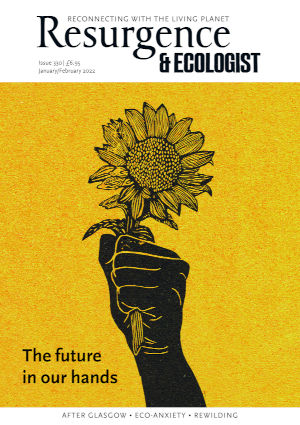Over the past two years, at the height of the pandemic, a controversy has beset the United Nations surrounding its Food Systems Summit, which took place largely virtually during the UN General Assembly in September 2021. To its detractors, the summit was doomed from the outset. This was a new process that appeared to sideline the UN’s Committee on Food Security, held to be a more representative and inclusive body; a summit in which big business was actively involved; and a summit run by UN special envoy Agnes Kalibata, a former minister of agriculture of Rwanda who had gone on to lead the Alliance for a Green Revolution in Africa, accused by some of propagating industrial agriculture and GM crops in the African sub-continent.
For others, the Food Systems Summit was an exciting prospect and a valuable initiative: dubbed a “people’s summit” by the organisers, it led to over 1,000 food systems dialogues around the world, involving over 100,000 people, and appeared to privilege the ideas and views of a wide cross-section of the food community, including on agro-ecology and regenerative agriculture. Over 100 countries submitted national food systems pathways – encompassing health, nutrition, environment, climate – to the summit. The US government committed US$5 billion to global hunger alleviation and food security, as well as US$5 billion to relieve hunger at home. The Gates Foundation put another (almost) one billion on the table to fund global nutrition efforts – its biggest ever contribution. Global businesses signed a declaration making solemn commitments to reform across a wide range of areas, from marketing to transparency in supply chains. Environmentalists, hunger experts, youth groups and UN agencies forged new coalitions, including to advance living incomes in food supply chains and to provide healthy, nutritious, sustainable school food around the world.
In the midst of the fractious build-up to the summit, in which these two characterisations formed the basis of most media coverage, Jessica Fanzo, Bloomberg Distinguished Professor of Food Ethics and Policy at the Johns Hopkins University, published two short, elegant, incisive, nuanced and humane books on the global food system, which cut through much of the controversy and set out the issues in a rigorous and enlightening manner. Can Fixing Dinner Fix the Planet? is the more deliberately accessible of the two, written for the general reader and providing a well-structured and intricately woven account of the food system’s role in hunger, diets, nutrition, food security, livelihoods, climate and biodiversity, interspersed with examples and case studies from the author’s academic studies globally and in the US. The book could be read in one sitting, and is greatly enriching and stimulating. It is the fruit of a life’s work and study of the subject.
Global Food Systems, Diets, and Nutrition, co-authored with Claire Davis, is more of an academic textbook, with pages of references and citations from the literature. It contains a helpful account of the successes and shortcomings of the much-cited EAT-Lancet Commission on Food, Planet, Health, published in early 2019, which suggested the adoption of a “global planetary health diet”. But it is also characterised by the same concise, pithy writing, clear structure, and nuanced argument, and provides valuable insights into the complexity and heterogeneity of the issues faced by the world’s many and varied food systems.
Above all, both books – in their global scope, scholarship, and moral feeling for the subject – manage to transcend the ideological divisions that beset the Food Systems Summit, to focus instead on clear-sighted, far-reaching recommendations for governments, UN institutions, companies and consumers by which the food system could be urgently improved for the benefit of people and planet alike.






